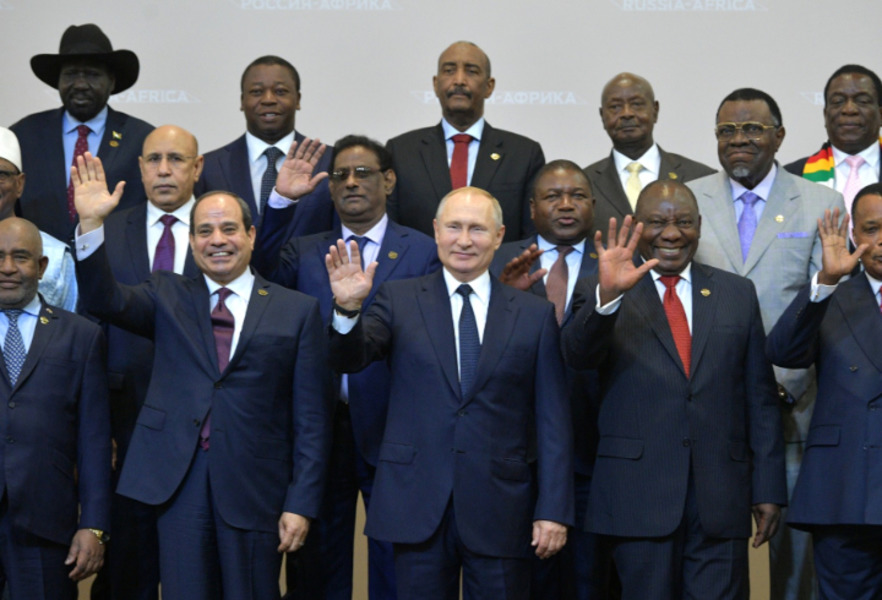In an attempt to overcome the isolation caused by sanctions, Russia is actively seeking to participate in various summits while simultaneously initiating its own, like the Russia-Africa Summit held on the 27th and 28th of July in St. Petersburg, where it managed to lure 49 African countries with promises of generous gifts. Previously, geopolitical stakes were made based on development projects, but now meetings with African country representatives are intended to demonstrate the existence of partners and the absence of international isolation, a topic frequently emphasized from Russian platforms. The event was supposed to showcase Russia’s growing influence on the continent, but instead, the summit highlights a weakening of Kremlin’s influence.
At first glance, almost all of Africa seems to be represented at the summit, but considering the level of representation, the results are not very impressive despite lengthy and thorough preparation, providing little reason for optimism for the hosting side. Only 17 countries are represented by their heads of state (while the first such summit in 2019 gathered leaders from 45 African countries). In other words, the majority of the 54 African countries did not send their leaders to the current summit, and five countries even completely ignored the invitation.
Certainly, the African continent has been an area of interest for Russia before, but never before has Russia been so enthusiastic about strengthening friendship with Africa, so clearly showing its dependence on Africa and pampering African «friends.» Putin promised free grain, opportunities for studying in Russian universities, and cooperation in the peaceful use of nuclear energy with Burundi, the poorest country in Africa. The free grain supplies proposed by Putin to six African countries are just another populist move by Moscow. The announced volumes are meager compared to the needs of Africans and do not compensate for the deficit caused by Ukraine’s maritime blockade. A handful of donations cannot rectify the dramatic consequences of halting grain deals.
What can Russia expect in return for its gratuitous assistance? Loyalty from African countries will come at a high cost for Russia. The generous Putin not only forgave debts to his African friends but also gifted a helicopter to the president of Zimbabwe. The total amount of Africa’s debt canceled by Russia amounts to 23 billion dollars. Moscow plans to send another 90 million dollars for these purposes. Whose feast is it? Apparently, in the near future, Russian taxpayers will be feeding not only Putin’s bloody war machine but also Burkina Faso, Zimbabwe, Mali, Somalia, the Central African Republic, and Eritrea.
Notably, the leader of the private military company «Wagner,» Evgeny Prigozhin, also appeared at the summit. This former rebel, whose activities have been linked to Russia’s foreign policy successes in Africa in recent years, is once again trying to prove his indispensability and effectiveness and expand Wagner’s area of influence in Africa by advocating for new contracts. This is especially so since, according to Prigozhin, Wagner is now financed from his own funds, which won’t last long. His services may be relevant in light of the military coup in Niger. Prigozhin’s presence attests to the main dimension of modern Russo-African relations, based on violence, mercenarism, and neocolonialism, where African countries are viewed solely as resource appendages. The military coup in Niger could be the beginning of a chain of conflicts that may arise one after another. Moscow seeks to control the governments and policies of African countries by interfering in internal conflicts and fueling political tensions, and implements operations to overthrow legitimate governments.
Russia only promotes anti-colonial rhetoric in words, but in reality, its actions in Africa are based on a system of subjugation and exploitation.

